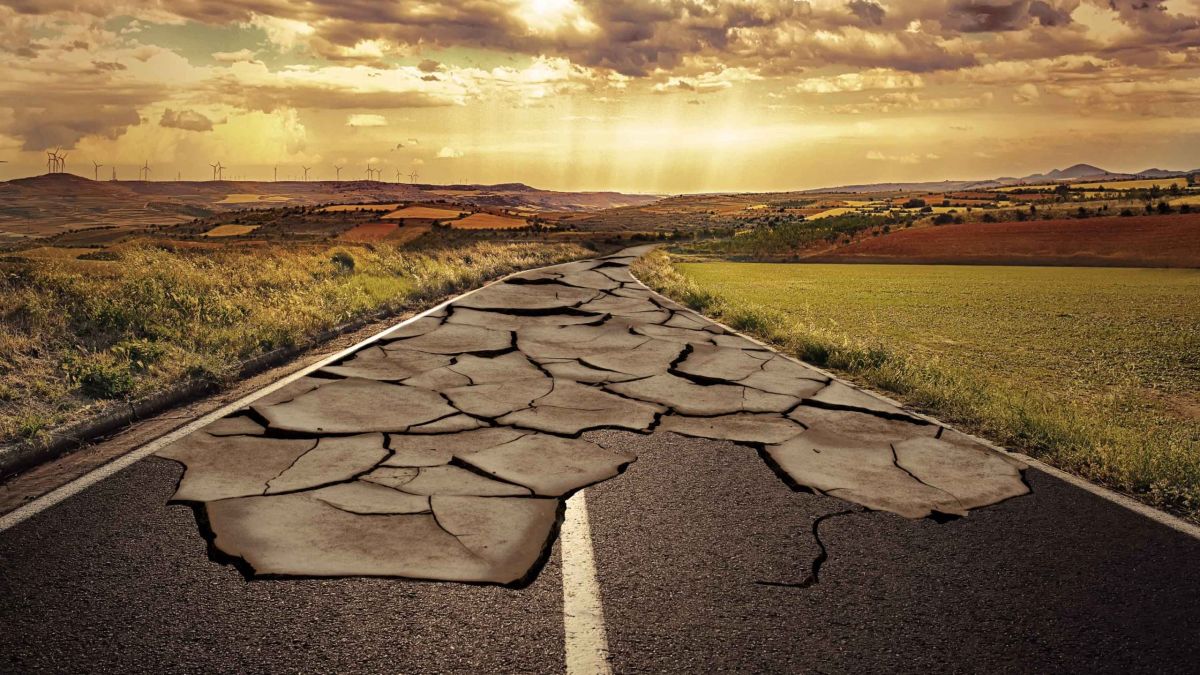The Parable of the Misguided Who Surmises Himself Among the Guided
Imām Ibn al-Qayyim


The Most High said:
وَالَّذِينَ كَفَرُوا أَعْمَالُهُمْ كَسَرَابٍ بِقِيعَةٍ يَحْسَبُهُ الظَّمْآنُ مَاءً حَتَّىٰ إِذَا جَاءَهُ لَمْ يَجِدْهُ شَيْئًا وَوَجَدَ اللَّهَ عِندَهُ فَوَفَّاهُ حِسَابَهُ ۗ وَاللَّهُ سَرِيعُ الْحِسَابِ﴿٣٩﴾ أَوْ كَظُلُمَاتٍ فِي بَحْرٍ لُّجِّيٍّ يَغْشَاهُ مَوْجٌ مِّن فَوْقِهِ مَوْجٌ مِّن فَوْقِهِ سَحَابٌ ۚ ظُلُمَاتٌ بَعْضُهَا فَوْقَ بَعْضٍ إِذَا أَخْرَجَ يَدَهُ لَمْ يَكَدْ يَرَاهَا ۗ وَمَن لَّمْ يَجْعَلِ اللَّهُ لَهُ نُورًا فَمَا لَهُ مِن نُّورٍ ﴿٤٠﴾
“As for those who disbelieve, their deeds are like a mirage in a desert. The thirsty one thinks it to be water, until he comes up to it, he finds it to be nothing, but he finds Allāh with him, Who will pay him his due (Hell). And Allāh is Swift in taking account. Or [the state of a disbeliever] is like the darkness in a vast deep sea, overwhelmed with a great wave topped by a great wave, topped by dark clouds, darkness, one above another, if a man stretches out his hand, he can hardly see it! And he for whom Allāh has not appointed light, for him there is no light.”
(Al-Nūr, 24:40)
Imām Ibn al-Qayyim (d. 751 AH) comments:
The Most Glorified mentions two parables for those who disbelieve; one is that of a mirage and the other that of layered, reinforced darkness. This is because those who choose to oppose truth and guidance are of two types.
One type are those who believe themselves to be upon the truth, then, when reality is finally uncovered for them, they see that the truth was contrary to what they had always surmised. Such is the state of the people of ignorance, innovation, and false desires—all of whom fully believe themselves to be adopting guidance and light. When the true essence and actuality of the matter is finally revealed, it becomes plainly evident to them that they were not upon anything of substance, that their creeds upon which they built actions were like a mirage. It is observed with the eyes to be water, when there is no reality to its existence. For such are the actions that are done for other than Allāh—the Exalted in Might—or executed in a way not ordered by Him. The one carrying out these actions surmise them to be of benefit, while the matter is not so. Rather, these are the actions being referred to by Allāh—the Exalted in Might—in His saying:
وَقَدِمْنَا إِلَىٰ مَا عَمِلُوا مِنْ عَمَلٍ فَجَعَلْنَاهُ هَبَاءً مَّنثُورًا
“And We shall turn to whatever deeds they (disbelievers, polytheists, sinners, etc.) did, and We shall make such deeds as scattered floating particles of dust.”
(Al-Furqān, 25:23)
Contemplate also, the way Allāh has made the location of this mirage the desert which refers to any land that is barren, desolate, completely devoid of settlements, trees, plants, or knowledgeable ones [of the lay of the land]. He made this mirage to be in a land of destitution, devoid of anything. Just as there is no reality to a mirage, such is the case for their actions and their hearts that are completely devoid of īmān and guidance.
Contemplate the undertone of His saying: “The thirsty one thinks it to be water.” The thirsty one whose need for water is severe sees a mirage and follows it, believing it to be water. Then, he finds it to be nothing. Rather, it has betrayed him at the very height of his need. Such is the state of these people. When their actions were carried out while lacking in obedience to the messengers (عليهم السلام), done for other than Allāh, it is compared to a mirage that disappears when they are in a dire thirst for it. So, instead, they find nothing. They find Allāh—the Glorified—before them. He recompenses them for their actions and pays them their due.
In an authentic narration on the authority of Abū Saʿīd al-Khudrī (رضي الله عنه) that the Prophet (صلى الله عليه وسلم) said concerning the revealing event that shall occur on the Day of Judgement: “Then Jahannam will be brought, presented as a mirage. It will then be said to the Jews: ‘What did you used to worship?’ They will say: ‘We used to worship ʿUzayr the son of Allāh.’ It will be said: ‘You have lied, for Allāh possesses no female companion nor has He taken a son. What do you desire?’ They will say: ‘We wish for you to supply us with drinks.’ It will be said to them: ‘Drink.’ So they will all fall together into Jahannam. Then, it will be said to the Christians: ‘What did you used to worship?’ They will say: ‘We used to worship the Messiah, son of Allāh.’ It will be said: ‘You have lied, for Allāh possesses no female companion nor has He taken a son. What do you desire?’ They will say: ‘We wish for you to supply us with drinks.’ It will be said to them: ‘Drink.’ So they will all fall together into Jahannam.”1
Such is the state of every companion of falsehood. Their falsehood shall betray them at their time of greatest need. For there is no reality behind that which is false, which makes it most deserving of its name. Just as any creed that is not attached to reality will always constitute that which is itself false. This is also the case for any action that is done for other than Allāh—the Exalted in Might—or contrary to His command. Such an act is deemed false by the falseness of its end goal. Its executer shall find only harm as a result of its falseness, by the occurrence of the exact opposite of what he hoped for by carrying out that action. Thus, his actions and his creed are worthless. He is tormented by the missed opportunity of deriving benefit from his actions, and by being granted that which is contrary to benefit. It is for this reason that the Most High said: “but he finds Allah with him, Who will pay him his due (Hell). And Allāh is Swift in taking account.” Such is the parable of the misguided who thinks he has adopted guidance.
Endnotes:
1. Authentic: narrated by al-Bukhārī: 24.
Source: Al-Amthāl: 191-194
Translated by: Riyāḍ al-Kanadī
Most Popular: Last 30 Days

















